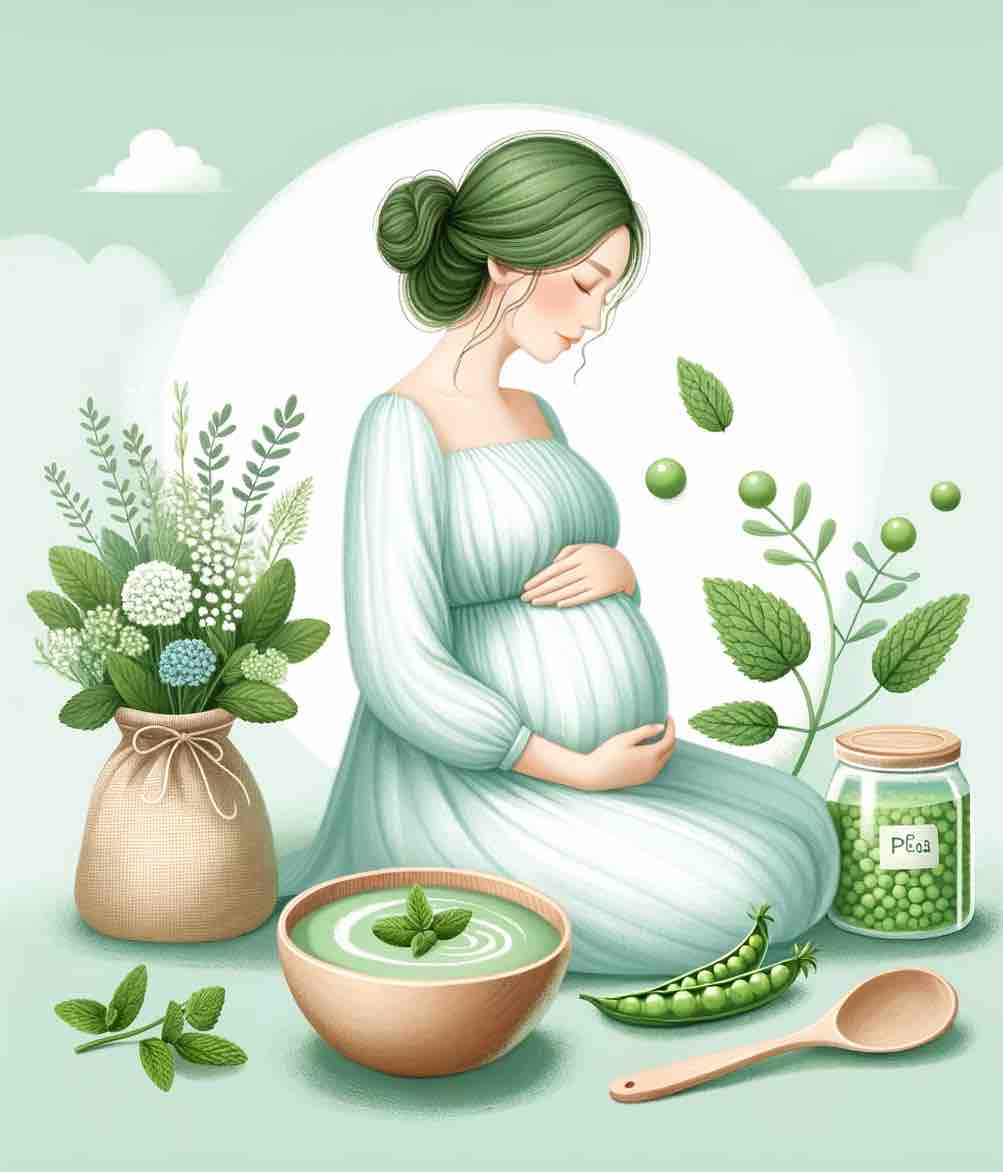
Introduction:
Hello, expectant mothers embarking on the incredible journey of pregnancy! The first trimester can be an exciting yet challenging time, often marked by the common symptom of morning sickness. To help you navigate these early weeks with comfort, we’ve lovingly prepared five soup recipes. Each one is crafted to soothe your stomach while providing essential nutrients to support your and your baby’s health during these crucial early stages.
Understanding First Trimester Nausea:
Nausea in early pregnancy, commonly known as morning sickness, is typically due to hormonal changes and can occur at any time of the day. Managing this symptom often involves eating small, frequent meals and opting for bland, easy-to-digest foods. Hydration is also key. The following soup recipes are specifically designed to be gentle on the stomach, easy to digest, and full of the necessary nutrients for a healthy pregnancy.
Recipes:
- Ginger-infused Chicken Broth
- Ingredients: Gentle chicken broth, fresh ginger root, tender chicken pieces, soft-cooked carrots, and a hint of lemon for freshness.
- Benefits: Ginger’s anti-nausea properties are well-documented, providing relief during bouts of morning sickness. The light chicken broth offers protein without being too heavy, while carrots contribute essential vitamins.
- Preparation: Begin by simmering thinly sliced ginger in the chicken broth to infuse the flavor. Add in shredded chicken and diced carrots, cooking until tender. Finish with a squeeze of lemon to elevate the taste and provide a refreshing twist.
- Mint and Pea Puree Soup
- Ingredients: Fresh green peas, aromatic mint leaves, a mild onion, and a base of low-sodium vegetable broth.
- Benefits: The cooling effect of mint can help ease nausea, while peas provide a gentle source of fiber and nutrients.
- Preparation: Cook the peas and onion until soft. Blend with fresh mint and broth into a smooth puree. This soup is not just easy on the stomach but also refreshing and light.
- Creamy Pumpkin Soup
- Ingredients: Rich pumpkin puree, a dash of nutmeg, ground ginger, and a swirl of light cream or coconut milk for a dairy-free option.
- Benefits: Pumpkin is gentle on the stomach and a great source of vitamin A, essential for fetal development.
- Preparation: Gently heat the pumpkin puree with nutmeg and ginger. Stir in the cream or coconut milk for a luxurious texture. This soup offers a blend of comfort and nutrition, perfect for easing morning discomfort.
- Apple and Carrot Ginger Soup
- Ingredients: Sweet apples, nutrient-rich carrots, a piece of ginger, and vegetable broth for a light base.
- Benefits: Apples provide a natural sweetness, while carrots deliver beta-carotene and other vital nutrients. Ginger adds its anti-nausea benefits.
- Preparation: Simmer chopped apples and carrots with a bit of ginger until tender. Blend with broth for a smooth, comforting soup. Its subtle sweetness and smooth texture make it a delightful choice for unsettled stomachs.
- Simple Barley and Vegetable Soup
- Ingredients: Nutritious barley, gentle vegetables like zucchini and spinach, cooked in a light and flavorful broth.
- Benefits: Barley is a good source of fiber, aiding in digestion and preventing constipation, a common pregnancy issue. Zucchini and spinach add mild flavors and essential nutrients without overwhelming the stomach.
- Preparation: Combine barley, chopped vegetables, and broth in a pot. Simmer until the barley is tender and the vegetables are cooked through. This hearty soup is nourishing yet easy to consume, making it ideal for days when you need something more substantial yet gentle.
Conclusion:
Navigating the first trimester can be a delicate balance, but with these soothing soups, you can ease some of the discomforts while ensuring you’re well-nourished. Each recipe is a blend of thoughtfully chosen ingredients, aiming to provide comfort and nutrition to support you and your baby during this special time.
Invitation to Share:
We would love to hear from you! If you have tried these recipes or have other favorite remedies for morning sickness, please share your experiences. Your insights and personal stories are invaluable to our community of expectant mothers navigating this beautiful yet challenging phase of pregnancy.
- Why are soups good for nausea during pregnancy? Soups are easy to digest, gentle on the stomach, and can be very soothing, making them ideal for combating nausea.
- Can these soups help with hydration? Yes, the high liquid content in soups helps maintain hydration, which is crucial during pregnancy.
- Are these soups safe for all pregnant women? Yes, but it’s always a good idea to consult with a healthcare provider regarding dietary changes during pregnancy.
- How often can I consume these soups? You can enjoy these soups as often as you like, especially when experiencing nausea.
- Can I freeze these soups for later use? Most of these soups freeze well, making them convenient for later consumption.
- Are these soups suitable for vegetarians? Yes, and you can always substitute ingredients to fit vegetarian preferences.
- How do these soups help with morning sickness? Ingredients like ginger and mint are known for their anti-nausea properties.
- Can I add protein to these soups? Absolutely, you can add ingredients like chicken, tofu, or beans for added protein.
- Will these soups provide enough nutrients for my baby? While nutritious, these soups should be part of a balanced diet to ensure you’re getting all the necessary nutrients.
- Can I make these soups more or less spicy? Yes, adjust the seasoning to suit your taste, especially if you’re sensitive to spices during pregnancy.
Blog Tags: Pregnancy Nausea Relief, First Trimester Soups, Morning Sickness Remedies, Nutritious Pregnancy Meals, Easy Digestible Soups, Healthy Eating During Pregnancy, Ginger Soups for Pregnancy, Comfort Foods for Expectant Mothers, Hydrating Pregnancy Recipes, Vegetarian Options for Pregnancy













